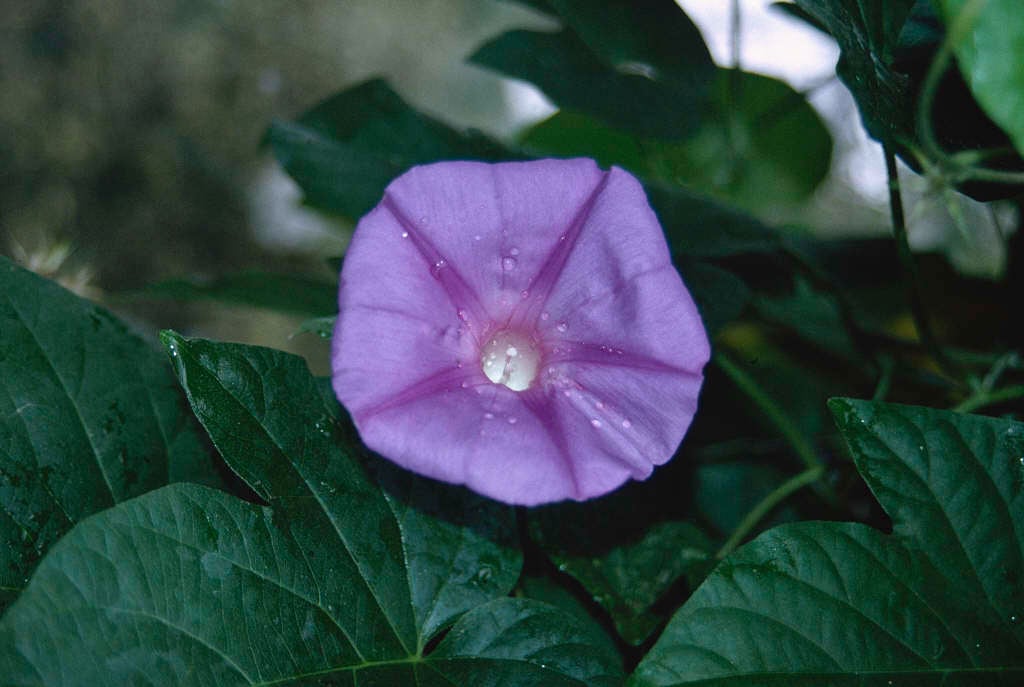Ipomoea indica
blue dawn flower
A vigorous twining evergreen perennial to 6m or more, with heart-shaped or 3-lobed leaves and wide-funnel-shaped blue or purple-blue flowers to 8cm across, opening over a long period from late spring to autumn

Buy this plant
Size
Ultimate height
4–8 metresTime to ultimate height
2–5 yearsUltimate spread
0.5–1 metresGrowing conditions
Moisture
Moist but well–drained, Well–drainedpH
Acid, Alkaline, NeutralColour & scent
| Stem | Flower | Foliage | Fruit | |
| Spring | Blue | Green | ||
|---|---|---|---|---|
| Summer | Blue | Green | ||
| Autumn | Blue | Green | ||
| Winter | Green |
Position
- Full sun
Aspect
South–facing or East–facing
Exposure
Sheltered Hardiness
H1CBotanical details
- Family
- Convolvulaceae
- Native to GB / Ireland
- No
- Foliage
- Evergreen
- Habit
- Climbing
- Potentially harmful
- Harmful if eaten. Wear gloves and other protective equipment when handling. Pets: Harmful if eaten. For further information and contact numbers regarding pets, see the HTA guide to potentially harmful plants
- Genus
Ipomoea can be annuals or perennials, often twining, or evergreen shrubs, with simple, lobed or dissected leaves and tubular or funnel-shaped flowers which may be solitary or borne in racemes or panicles
- Name status
Correct
- Plant range
- Pantropical
How to grow
Cultivation
Grow under glass in a peat-free, loam-based potting compost, in full light with shade from hot sun. Water freely when in growth and apply a balanced liquid fertilizer every two or three weeks. Water sparingly in winter. If grown in a container it can be put outside in summer
Propagation
Propagate by seed. See sowing seeds indoors for further advice
Suggested planting locations and garden types
- Patio and container plants
Pruning
Pruning group 11 in spring
Pests
May be susceptible to glasshoouse red spider mite and glasshouse whitefly
Diseases
May be susceptible to fusarium wilt, powdery mildews and virus diseases
Love gardening
Sign up to receive regular gardening tips, inspiration, offers and more
View our Privacy Policy
Get involved
The Royal Horticultural Society is the UK’s leading gardening charity. We aim to enrich everyone’s life through plants, and make the UK a greener and more beautiful place.